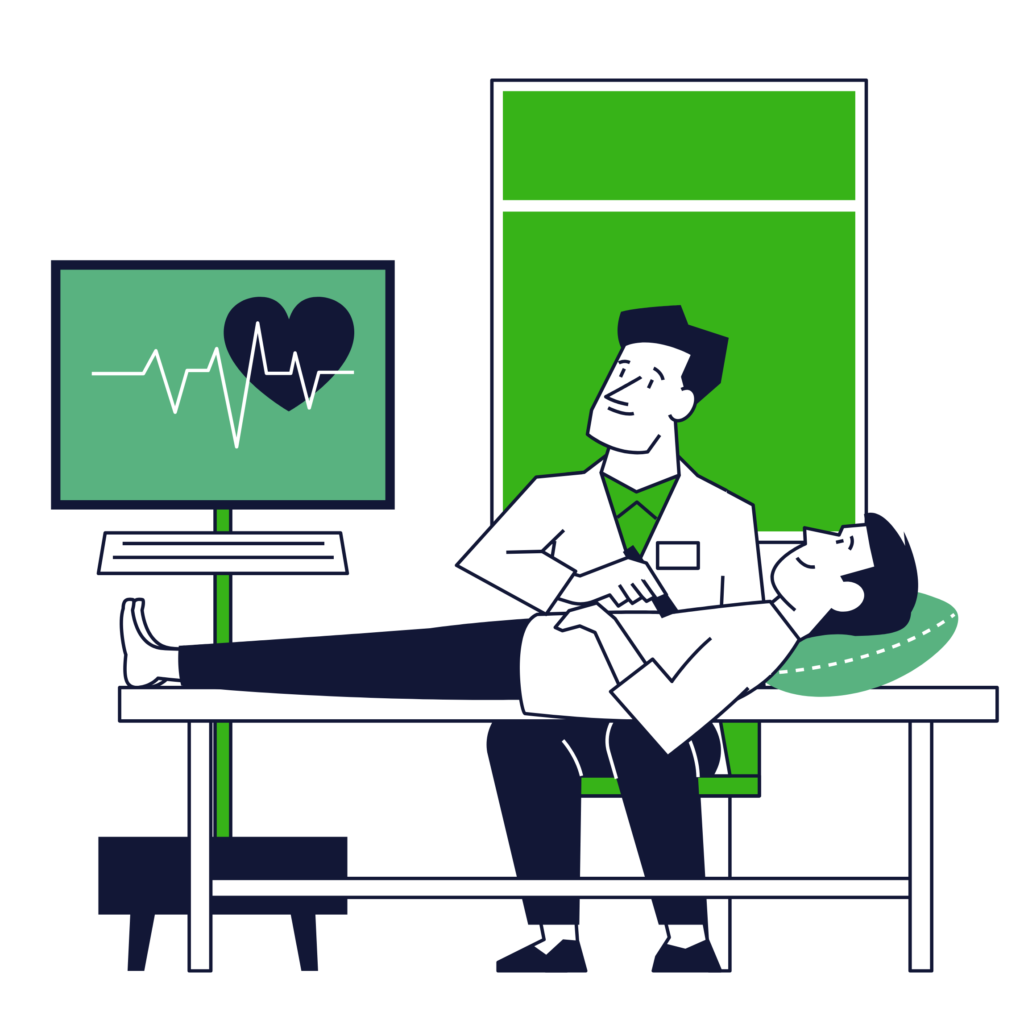TMT Test at
Delhi Heart Hospital
Accurate TMT Test
for Better Heart Health
At Delhi Heart Hospital, we offer advanced TMT Test services to provide precise understanding of your heart. Our state-of-the-art technology and expert cardiologists ensure accurate diagnostics for effective treatment planning.
Book An Appointment
OPD patients served
Years Of Experience
IPD Patients served

Delhi Heart Hospital : Your Trusted partner in Cardiac care for all TMT Treadmill Test
At Delhi Heart Hospital, we are dedicated to providing exceptional cardiovascular care to our patients. Our state-of-the-art facilities and highly skilled medical team ensure that you receive the best possible treatment and care for all your heart health needs.
Our Core Services
Get Tested at East Delhi's Premium heart Centre
2D ECHO
A non-invasive heart test using sound waves to create a 2D image of heart structure & function.

Stress ECHO & TMT
Heart test that combines exercise with ECG & 2D-ECHO to assess heart function under stress.

Holter Study
A wearable heart monitor that records heart rhythm & detects irregularities over 24 hours.

Inpatient & Critical Care
Rest easy knowing experienced doctors provide top-tier critical care during hospital stay.

Cardiology & Chest OPD
Receive expert cardiology and respiratory care from experienced doctors at our OPD service.

24 x 7 Pathology Lab Service
Accurate and reliable pathology lab services for precise diagnosis and effective treatment.

Delhi Heart Hospital's
Comprehensive TMT Test
Understand Your Heart’s Health with Advanced Echocardiography
Our experienced cardiologists use advanced echocardiography technology to provide detailed images of your heart, helping diagnose and manage various cardiac conditions.
Other Tests

Treadmill Test (TMT)

Ambulatory BP Monitoring
We use the latest echocardiography equipment to ensure high-quality imaging and reliable results.

Holter (24 hours ECG)
Holter study is a non-invasive diagnostic test that records the heart's electrical activity over a 24-hour period.
Echo Scan
Why Choose Our Certified TMT and Stress Test ?
At Delhi Heart Hospital, we specialise in delivering precise and comprehensive TMT Test, ensuring accurate diagnostics and personalized care plans tailored to your cardiac health needs.

Happy Patients
Heart Procedures
Years Of Experience
Cardiac Specialist Staff
Echo Scan
Let's Understand Treadmill Test better!
A Treadmill Test (TMT), also known as a stress test, is a diagnostic procedure used to evaluate how your heart responds to physical exertion. During the test, you walk or run on a treadmill while your heart rate, blood pressure, and electrical activity are closely monitored. This helps identify conditions such as blocked arteries, irregular heart rhythms, or reduced blood flow to the heart.
A TMT test is commonly performed to:
- Diagnose coronary artery disease.
- Evaluate chest pain or shortness of breath.
- Monitor the effectiveness of heart treatments or surgeries.
- Assess your overall cardiac fitness.
By analyzing how your heart performs under stress, doctors can make more informed decisions about your treatment plan.

Excercise Treadmill Test
Understanding TMT Test
What is a TMT test used for?
A TMT test is used to evaluate how well your heart performs under physical stress. It helps detect conditions like coronary artery disease, irregular heart rhythms, and reduced blood flow to the heart.
How long does the TMT test take?
The test typically takes about 30-45 minutes, including preparation, exercise, and post-test observation.
Is the TMT test safe?
Yes, the TMT test is a safe and commonly performed procedure. It is conducted under the supervision of trained medical professionals who monitor your vitals throughout the test.
Do I need to stop my medications before the test?
It depends on the type of medications you are taking. You should consult your doctor, who will advise you on whether to continue or stop your medications before the test.
What should I expect after the TMT test?
After the test, you may feel slightly fatigued, which is normal. Your doctor will review the results and discuss any necessary follow-up steps or treatments with you.
Can I take the TMT test if I have pre-existing heart conditions?
Yes, but you must inform your doctor about your medical history. They will determine if the test is appropriate for you and take necessary precautions during the procedure.
Let me know if you’d like additional details or edits!

